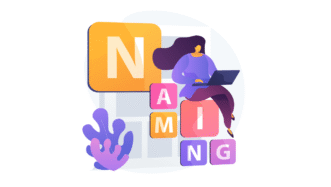LESSON OVERVIEW
In this ESL lesson about history, students watch a stand-up comedy piece, talk about history and learn useful vocabulary.
VOCABULARY & VIDEO
This ESL lesson about history starts with an optional warm-up activity in which students discuss some questions about history. Then, they need to match halves to create sentences. The sentences contain the target vocabulary for the lesson (e.g. cultural heritage, make amends, artefacts, loot). Then, students choose two of the statements and elaborate on them. Students should ask follow-up questions to what their partner says. Next, students complete a list of tasks which all include the target vocabulary (e.g. Name an event considered historic for your country.). Finally, students watch the video for the first time and explain what they think about it using some prompts. The prompts refer to the difficulty of the video and the humour in it.
DISCUSSION & IDIOMS
After the video, students read some information about the British Museum which the comedian talked about. The teacher can choose to show students some photos and more information available in the provided link. Students discuss several questions referring to some of the artefacts in the British Museum. Then, they watch the video for the second time and pay attention to four idioms the comedian uses (e.g. not have a leg to stand on, right a wrong). They need to explain what the idioms mean. After that, they practise using the idioms in a short activity. In the activity, they need to react to different situations. The teacher can also ask students to come up with more situations for the teacher to react using the idioms. In the last part of this ESL lesson about history, students look at two comments about history and decide what they would say in support or against them. They need to use some of the language from the lesson.
There is also a link in the teacher’s version of the worksheet to a short video which the teacher can use to supplement the lesson. The video contains some arguments not discussed in the lesson.
Subscribe to unlock these and many other Standalone lesson with the Premium planWORKSHEETS












Hi there – love this class, thank you! Very interesting topic, especially this year, with the Crown Jewels about to get some headlines. Couple of errors I’ve found on the slides: It’s “Easter Island” not “Eastern”, and “I gave them some bad investment advice” not “a bad investment advice”
Hi Robert! I’m sorry for the errors, we’ve just fixed them. Thanks for taking the time to bring them to our attention!
Interesting and thought-provoking class, well done! The video, however, is more suited to C2 students. C1 students can deal with it aided by subtitles.
Thanks, Matteo. I would still encourage students to try to understand the video without subtitles. 🙂
Definitely, hence my comment on it being more apt for C2 students. On top of the idioms covered in the lesson, there are a lot of colloquial expressions (e.g. “in a jiffy”) that, added to the fact that it is comedy, make it very challenging for them to grasp at lower levels.
Thank you for the great work by the way!
Thanks for you kind words 🙂
Sure, humour is generally difficult to understand for a lanaguge learner. I believe many C1 students won’t find the video too challenging, though.
A very simplistic and politically motivated video. Many of the items in the British Museum were bought or gifted to persons who then donated them to the museum but I suspect that does not fit your narrative. I would expect a more educated viewpoint on what is supposedly an educational site.
Hi, thanks for your feedback.
The lesson provides a perspective on the history of colonialism. Nowhere is it stated that all British Museum artefacts were stolen – students are simply encouraged to discuss why some artifacts have still not been returned to their rightful owners. When it comes to the artefacts mentioned in the lesson, you can read more about their history and how they were looted in this article (you will also find the link in the teacher’s note in ex. 5/slide 11). And it’s also good to keep in mind that the video is stand-up comedy, which should always be taken with a grain of salt.
This was a really interesting topic and the students loved it – thanks! The video was especially relevant and introduced some expressions that were new to my group – and it was very funny!
Thanks, May! I’m thrilled to hear the lesson was a success 🙂
here’s a follow-up reading on the topic:
https://www.theguardian.com/world/2025/jul/31/a-joyous-day-india-celebrates-return-of-ancient-gems-linked-to-the-buddha
Thanks for sharing!